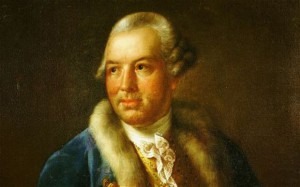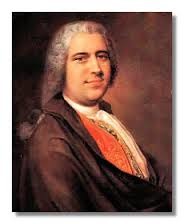
Christoph Willibald Gluck
Credit: www.telegraph.co.uk
Johann Adolph Hasse: Cleofide, “Digli ch’io son fedele” (Tell him that I am faithful)

Johann Adolph Hasse
Credit: www.classical.net
Christoph Willibald Gluck: Alceste, “Ah, per questo gia stanco” (Ah, I am so tired already)
As an opera composer, Gluck aspired to beautiful simplicity. The music is intimately molded to the drama, with recitatives, arias, and choruses intermingled in large unified scenes. Amalgamating Italian melodic grace, German seriousness and the stately magnificence of the French tragédie lyrique, he composed operas that “avoided a display of difficulty at the expense of clarity.” Inspired by the Orpheus myth, Gluck composed his Orfeo ed Euridice for the Viennese stage in 1762, and it quickly became his most popular work. In addition, it greatly influenced subsequent German opera, including Mozart’s Magic Flute, Beethoven’s Fidelio and Wagner’s Rheingold.
Christoph Willibald Gluck: Orfeo, “Che farò senza Euridice” What shall I do without Euridice”
Gluck’s career climaxed with the Paris production of Iphigénie en Aulide in 1774. The event awakened extraordinary interest, as critical opposition to the old-fashioned French opera had erupted in the 1752 pamphlet war known as the Querelle des bouffons (Quarrel of the comic actors.) At the center of the dispute was an Italian opera company, which enjoyed spectacular success with performances of Italian comic opera. Partisans of Italian opera suggested that the French language was inherently unsuitable for singing and concluded, “that the French have no music and cannot have any.” Gluck opportunistically presented himself as wanting to prove that a good opera could be written to French words, and he set out to compose “a noble, sensitive, and natural music suited for all nations, so as to abolish the ridiculous distinctions of national styles.”
Christoph Willibald Gluck: Iphigénie en Aulide “Unis des la plus tendre enfance”
Iphigénie was a tremendous success, as it beautifully balanced the dramatic and musical interests of opera. As such, Gluck’s influence on the form and spirit of opera was transmitted to the nineteenth century through such composers as Niccolò Piccinni, Luigi Cherubini, Gasparo Spontini and Hector Berlioz.


